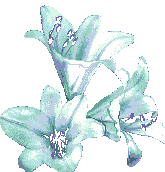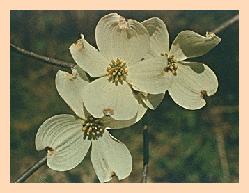|



Often called the "white-robed apostles of hope," lilies were found growing in the garden of Gethsemane after Christ's agony.

Tradition has it that the beautiful white lilies spring up where drops of Christ's
sweat fell to the ground in his final hours of sorrow and distress.

Christian churches continue this tradition at Easter by banking their altars and surrounding their crosses with masses of Easter lilies to commemorate the Resurrection and hope of life everlasting.

The pure white lily has long been closely associated with the Virgin Mary.
In early paintings, the Angel Gabriel is pictured extending to Mary a branch of pure white lilies, announcing that she is to be the Mother of the Christ child.

In other paintings, saints are pictured bringing vases full of white lilies to Mary and the Infant Jesus.

The legend is told that when Mary's tomb was visited three days after her burial, it was found empty save for bunches of majestic white lilies.

Early writers and artists made the lily the emblem of the Annunciation, the Resurrection of the Virgin: the pure white petals signifying her spotless body and the golden anthers her soul glowing with heavenly light.

In yet another expression of womanhood, lilies had a significant presence in the paradise of Adam and Eve.

Tradition has it that when Eve left the Garden of Eden she shed real tears of repentance, and from those remorseful tears sprung up lilies.
Author Unknown
another legend


When Christ was on earth, the dogwood grew To a towering size with a lovely hue. Its branches were strong and interwoven And for Christ's cross its timbers were chosen.

Being distressed at the use of the wood
Christ made a promise which still holds good: "Not ever again shall the dogwood grow to be large enough for a tree,

And so slender and twisted it shall always be
With cross-shaped blossoms for all to see.
The petals shall have bloodstains marked brown And in the blossom's center a thorny crown.

All who see it will think of me,
Nailed to a cross from a dogwood tree.
Protected and cherished this tree shall be A reflection to all of my agony."
Author Unknown


|
|